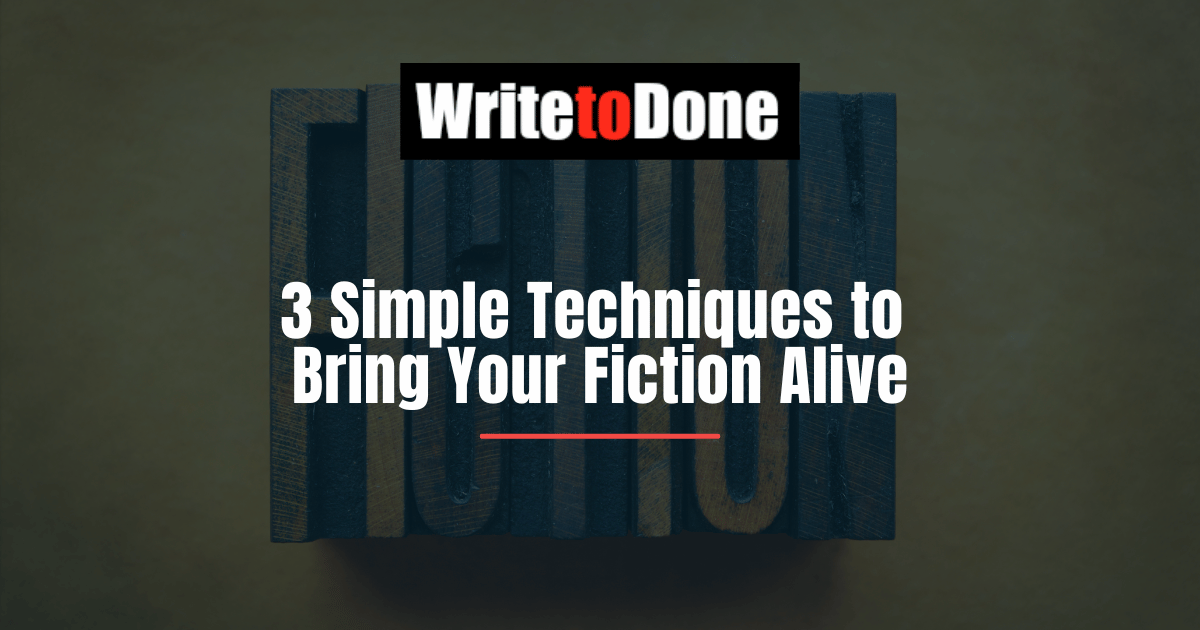New writers are often given the following piece of advice: “Write what you know”. In other words, concentrate on the things you’ve observed and the things you understand about the world around you. If you’re a former journalist wanting to write a mystery, make your main character a journalist; if you’re a coal miner, write about the dangers and camaraderie of life down the pit.
Such first-hand experience can add verisimilitude to your fiction; but what happens if you’re trying to write genre fiction? What if you’re trying to write about a future society so far removed in time that they barely remember the present day? What if you’re trying to write about a supernatural horror preying on a group of cave divers, or a lone warrior on a quest across a mythic fantasy kingdom?
In science fiction, fantasy and horror, characters are routinely put in situations in which it would be impossible for the writer to gain any direct experience. How then can you convincingly fill in these scenes using only your imagination?
1. Identify the parts of the scene you do know.
People for example. Your characters should be recognizably human, each with their own distinct personalities and foibles. No matter how fantastical the situation, you can base your characters on your own experiences of people and the way they interact with one another.
Sometimes when writing fiction, it’s hard to keep a consistent mental image of all the characters involved, and mistakes start to creep in. You get muddled and describe your hero as having blue eyes in chapter two and green ones in chapter six. To get around this problem, I suggest casting your story in the same way you’d cast a movie.
Go through magazines and pick out photos of actors, celebrities, models, or “real” people to represent your characters, and stick them on the wall behind your computer monitor. Not only will this help you keep their physical descriptions consistent as you write, it’ll also help you visualize your scenes better, and you may even find the pictures suggest things you can work into the story to give your characters added depth, such as facial tics, a preference for a particular style of clothes, or an unusual mannerism, such as a raised eyebrow or twisted smile.
2. Draw on incidents from your own life and try to map them onto the situations in which your characters find themselves.
I’ve never been involved in a gun battle, for instance, but I have been paintballing. I know what it’s like to hunker down uncomfortably behind a tree stump with gravel digging into my knees, to run out of ammo at a crucial moment, and to take a high-velocity pellet to the stomach, head or leg.
It’s easier to write about characters in extreme situations if you’ve had a few adventures of your own. In my time, I’ve also flown a light aircraft; been punched in the face; crawled through potholes; kayaked down white water rapids; jumped off a bridge; taken fencing and shooting lessons; had my heart broken; swum in Loch Ness; and climbed a number of mountains.
I know what it’s like to be tired and wet and cold; I know what it’s like to lose someone; and what it feels like to break a bone. Drawing on these experiences can add authenticity to the most fantastical situations, by providing the small details and observations that really bring a scene to life.
3. Know your setting.
In genre writing, it helps if you know your setting inside out. If it’s the flight deck of a space shuttle, research all you can; find images online; try to find a simulator, or at least set foot on the flight deck of an airliner. If it’s an invented city, then make sure you know everything there is to know about it. Visit London or Amsterdam or Barcelona and look at the old buildings.
Use Google Maps to “walk” through the streets of cities in Japan, America and Europe. Get the flavor of as many cities as possible, and take the bits you like to furnish your creation. Draw maps. Immerse yourself to the point where you can see your city in your mind’s eye and hear, smell, and feel its hustle and bustle around you.
As my first novel, Silversands, was set a distant planet, I spent months assembling notes about the planet’s climate, orbit, geography and seasons. I researched anaerobic bacteria, magnetic weaponry and weird terrestrial sea life. I got to know the characters, their back stories and personalities. I even based the craggy landscape on my childhood memories of Pembrokeshire, with its plunging rocky cliffs and yellow-tipped gorse bushes.
By the time I finished writing the novel, I had an entire box full of background notes, sketches and maps. Most of that information didn’t make it into the finished story, but it played a vital part in helping me convincingly visualize and communicate the setting.
Of course, I’m not downplaying the importance of imagination. A strong imagination is one of the genre writer’s most essential tools, and without it, you may as well be writing nonfiction. In order to write genre fiction, you need the audacity to make bold leaps into the unknown and turn the everyday world on its head.
My argument is that if you want to lend authenticity to your flights of fancy, you need to do your research, observe the people around you, and have your own adventures.
















